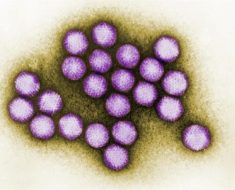Scientists from Karolinska Institutet and Hannover Medical School have published two studies that provide insights into how the immune system responds and helps to clear a hepatitis B infection after treatment interruption. The findings offer a framework for future tailored treatment strategies and are published in the Journal of Infectious Diseases and Journal of Hepatology.
Chronic hepatitis B (CHB) caused by hepatitis B virus (HBV), affects 250 million individuals worldwide. The virus infects the liver and infected patients are at risk of developing liver cirrhosis and liver cancer.
Nucleoside/nucleotide analogues (NAs) are the most commonly used drugs to treat CHB, but this treatment only suppresses the virus and rarely leads to eradication of the infection. Thus, for most patients this is a life-long treatment.
The immune system recovers in some patients
Because of this, new treatment strategies are continuously evaluated with the aim to achieve elimination of HBV. One involves doing a structured NA treatment interruption in patients that have been on the treatment for a couple of years. In 20-30 per cent of the CHB patients the immune system recovers from being exhausted by the chronic infection and gains the capacity to efficiently fight the virus when it starts to replicate after the treatment has been discontinued.
In a clinical trial 15 patients with CHB underwent a structured treatment cessation. Before, during and after, the patients were closely monitored and biological samples were continuously collected for subsequent analysis using flow cytometry. The research focus was on the parts of the immune system that has the capacity to recognise and eliminate virus-infected liver cells.
“Interruption of NA treatment significantly boosts the capacity of immune cells to kill HBV-infected cells and this activation was also associated with functional cure in the patients. For patients clearing the infection, we also found that the immune system was less exhausted and that immune cells specific for the virus expanded in vivo,” says Ph.D.-student Christine Zimmer at the Department of Medicine, Huddinge, Karolinska Institutet.
Further studies necessary
Even though patient recruitment for this kind of clinical trial is extremely challenging, the findings need to be confirmed in larger studies.
Source: Read Full Article





